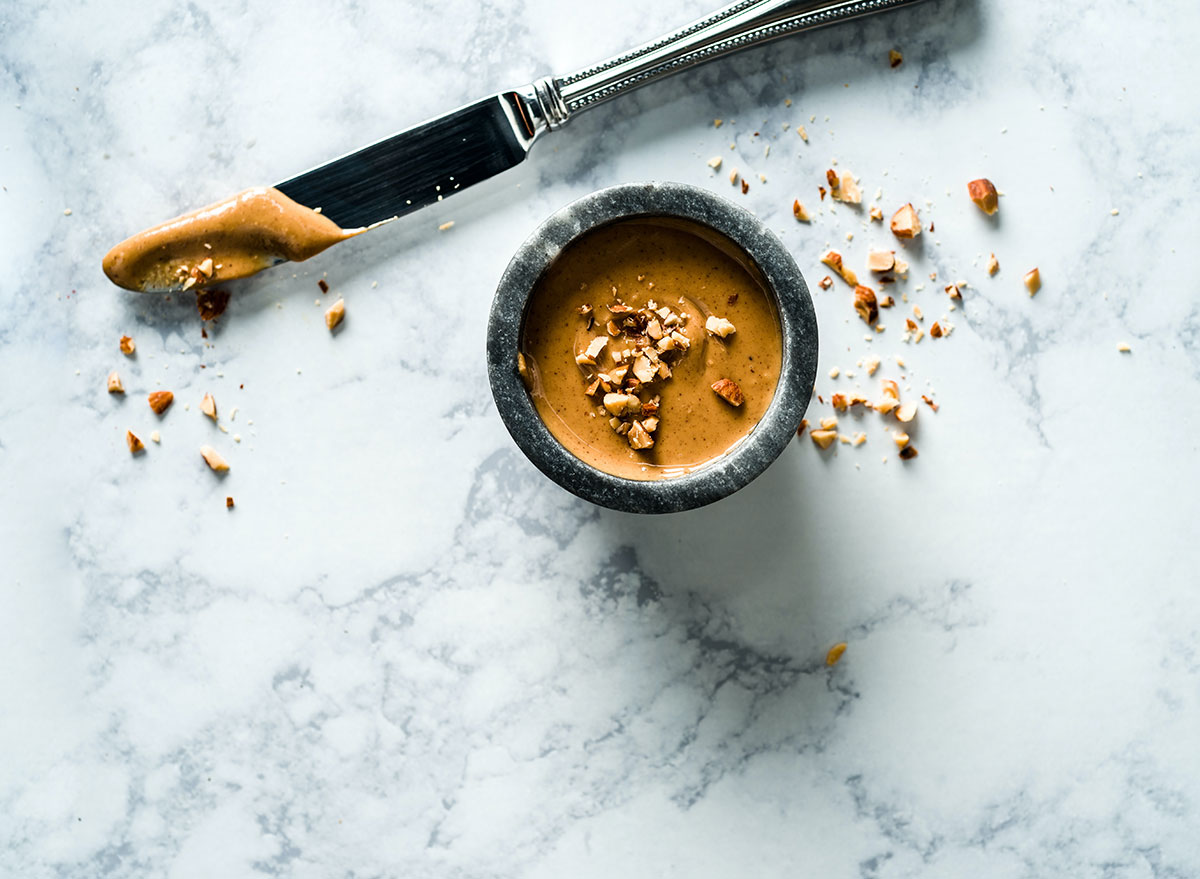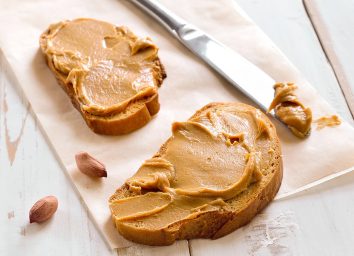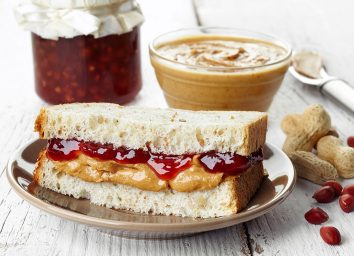Peanut Butter vs Almond Butter: What is Healthier For You?

Should you buy peanut butter or almond butter? It’s probably a common question you come across every time you visit the nut butter aisle at the grocery store. While both are delicious options, it can be hard to decipher which nut butter is actually healthier for you. Even though almond butter sounds like the healthier option, we decided to do some research to see if it’s just all in our heads. We talked to Dr. Rachel Paul, PhD, RD from CollegeNutritionist.com, to decipher which nut butter is healthier for you. We admit, the answer actually surprised us.
While it’s tempting to deem one nut butter better than the other, Dr. Paul points out that there’s a nutritional benefit to keeping both of them in your diet, and you actually don’t have to deem one better than the other.
“The two nut butters have some different nutritional benefits,” says Paul. “The best thing to do is to alternate between the two, [as well as] other nut and seed butters, to get a variety of benefits.”
So the question is, what kind of nutritional benefits would you like to get from your nut butter? We broke down the specific benefits you may be looking for, and which nut butter to have because of it.
If you want less fat
It would be easy to assume that almond butter would have less fat than peanut butter, but surprisingly, peanut butter actually has less monosaturated fat than almond butter by 25%.
Now keep in mind, having monosaturated fat in your diet is actually a good thing! Monosaturated fat is a healthy dietary fat that keeps you feeling full and satisfied after your meal.
“Healthy fats offer many health benefits such as promoting brain and nervous system normal functions, lowering cholesterol levels, and reducing inflammation,” says Dr. Paul.
So if you are looking for nut butter that’s really filling, almond butter would actually be the better option. But the difference in grams is pretty small (about 2 grams per 1 tablespoon serving), so both nut butters are still great sources of monosaturated fat.
If you want more fiber
While the difference in monosaturated fat between the two nut butters is minor, the difference in fiber count is actually significant. If you’re looking to incorporate more fiber into your diet, almond butter is the better option because it provides two times the amount of fiber compared to peanut butter. There are a lot of health benefits to incorporating more fiber into your diet (better digestion, weight loss, you name it). And if you don’t eat enough of it, your body could take a serious hit. Here’s what happens to your body when you don’t eat enough fiber.
If you want more vitamins and minerals
If you’re looking to incorporate more natural vitamins into your diet, almond butter is actually the better choice here. According to Dr. Paul, almond butter contains seven times the amount of calcium, three times the amount of vitamin E, and two times the amount of iron compared to peanut butter.
However, if you’re looking for a nut butter that will give you more potassium, biotin, magnesium, or zinc, you actually can turn to either of them. Both peanut butter and almond butter have a strong amount of both of these minerals.
If you want fewer calories
Sorry, but for this one, both are about the same in calories. For a 1-tablespoon serving of peanut butter, as well as almond butter, you’re consuming about 100 calories at a time. Obviously, this is dependent on the peanut butter or almond butter brand you decide to buy. But generally, you’ll see both nut butters have around 100 calories for 1 tablespoon of spread. So if you’re looking for a nut butter that’s good on calories, you can choose either of these.
If you’re looking for more healthy eating tips, be sure to sign up for our newsletter.








